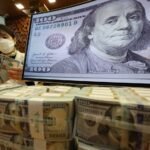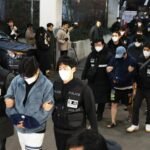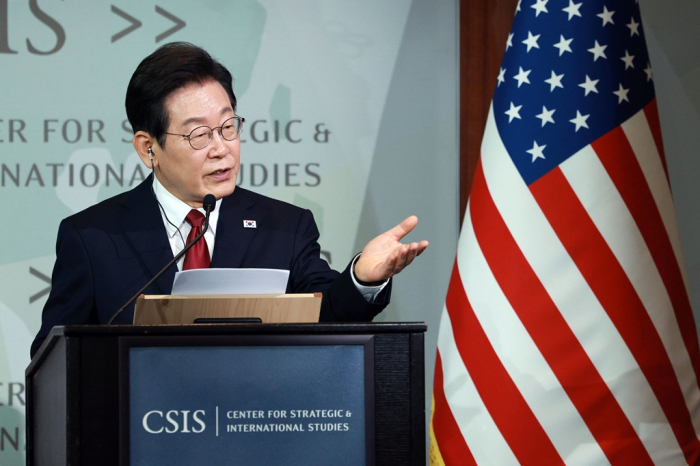
WASHINGTON, D.C. – South Korean President Lee Jae Myung said on Monday that Seoul can no longer maintain its decades-old strategy of relying on Washington for security while deepening economic ties with Beijing, signaling a significant shift in the country’s foreign policy at a time of intensifying US-China rivalry.
Speaking at the Center for Strategic and International Studies (CSIS) in Washington, D.C., Lee said, “It is true that Korea has pursued a position of security with the US and economy with China in the past. But we are no longer in a situation where such an attitude is possible.”
He is in Washington for a summit meeting with President Donald Trump and to seek closer ties with US business leaders.
His comments are the clearest break yet from Seoul’s balancing diplomacy, which his predecessors have sought to preserve as competition between Washington and Beijing has intensified.
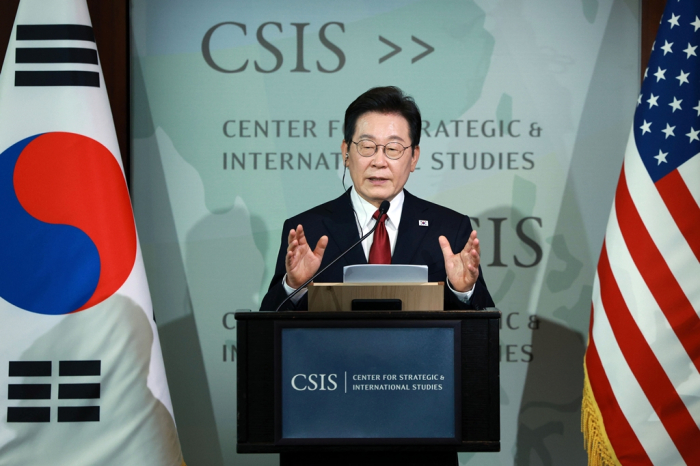
Lee cited “supply chain realignments between the US-led free world and the China-led bloc” and Washington’s increasingly explicit efforts to contain Beijing.
“Korea cannot act or make judgments that deviate from the US’ basic policy direction,” he said.
INEVITABLE RELATIONSHIP ARISING FROM GEOPOLITICAL PROXIMITY
On ties with China, Lee struck a cautious tone, noting that Seoul had to “manage and maintain the inevitable relationship that arises from geographical proximity,” while downplaying speculation that his administration is adopting a pro-Beijing stance.
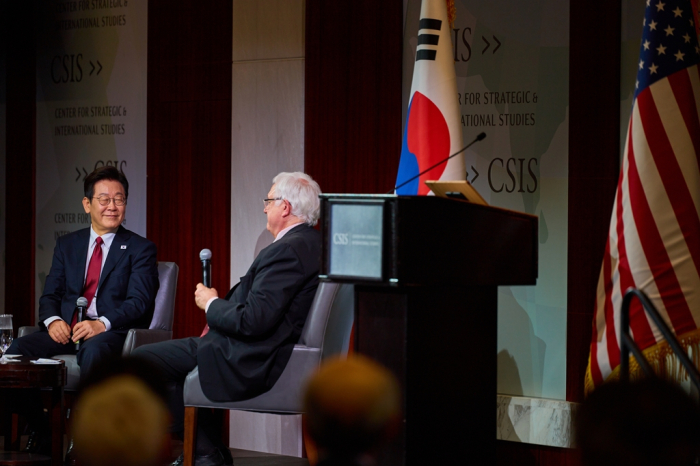
South Korea has long sought to balance its security alliance with the US and its economic reliance on China, its largest trading partner.
But Washington has pressured allies to reduce dependence on Chinese supply chains, a message underlined in June by US Defense Secretary Pete Hegseth, who warned at the Shangri-La Dialogue in Singapore that economic dependence on China deepens its malign influence. He urged US allies not to stand with Beijing.
SEOUL TO INCREASE DEFENSE SPENDING
At the speech, Lee also pledged to increase South Korea’s defense spending against North Korea, saying Seoul will take a “more proactive role” in ensuring the security of the Korean Peninsula.
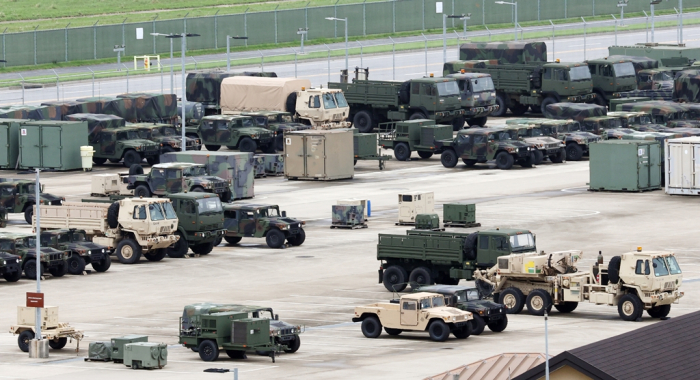
His remarks come as the Trump administration has pressed allies, where US troops are stationed, to raise military expenditure to as much as 5% of gross domestic product.
Analysts said the foreign policy stance shift underscores South Korea’s growing entanglement in the geopolitical confrontation between its security guarantor and its biggest export market, with Lee betting that alignment with Washington offers greater long-term security and economic resilience than a precarious balancing act.
By Jae-young Han
jyhan@hankyung.com
In-Soo Nam edited this article.



